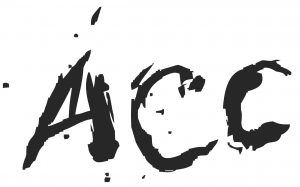Cooperation and Media Partners
The Goethe-Institut is the cultural institute of the Federal Republic of Germany with a global reach. It promotes knowledge of the German language abroad and fosters international cultural cooperation. In the sectors of film, television and radio, it promotes networking, initiating the exchange of content and artistic dialogue between German and international experts. The Radio Art Residency is unique within the network of the Goethe-Institut. It offers fellows the opportunity to benefit from the multi-faceted cultural activities of the Goethe-Institut.

Experimental Radio at Bauhaus-Universität Weimar is unique in Europe as a training and production facility for the artistic medium of radio. It sees itself as a production site for innovative, radiophonic formats and creative interdisciplinary and international models that take the artistic and technical changes of our time into account.
Its training encompasses all areas of the radio medium, from journalism and radio art to radio installation, live radio plays and other forms of radio action. Special attention is paid to interactive projects made possible by internet radio, streaming, podcasts and mobile devices. Its own broadcasting and production studio and the direct connection of Experimental Radio to the weekly broadcasting at bauhaus.fm enables new, unconventional stimuli to be brought to the public and even made available worldwide via the website and streaming. The international network, which has been expanded through the artistic research project Radiophonic Spaces, offers exchange and diverse opportunities for cooperation with the radio art scene as well as with public and independent radio stations at home and abroad.

The University of Music Franz Liszt Weimar sees itself as an international university training and research institution. It is deeply rooted in the European musical tradition and at home in the highly symbolic cultural city of Weimar.
Its education is based on three pillars in the spirit of Franz Liszt: Music practice, pedagogy and science – they are indispensable for a holistic education and complement each other.
The university seeks answers to the central questions of art, culture and society. That is why innovation, curiosity and openness are the yardsticks of its actions. For them, musical education and personality development are inseparable. Gender equality and consideration of the needs of people with disabilities are a matter of course.
Its mission is derived from its musical cultural heritage, which is constantly renewed and continued. Teaching, art and research are free and create open spaces for study, experimentation and renewal.
Klangkunst on Deutschlandfunk Kultur
Deutschlandradio is a multi-country broadcaster that produces three nationwide radio programs: Deutschlandfunk, Deutschlandfunk Kultur and Deutschlandfunk Nova. Together with ARD and ZDF, Deutschlandradio forms the public broadcasting system in Germany.
The weekly program “Sound Art” on Deutschlandfunk Kultur was established in 1995 in order to expand the formal possibilities of radio drama, to test new genres and to introduce listeners to outstanding examples of international sound art. The station, under the editorship of Marcus Gammel, sees itself as a laboratory of radio art with the broadest possible spectrum of sounds. The starting point for these broadcasts is a wide variety of material and topics from the magical world of listening.
Sound Art is a member of the Ars Acustica working group of the European Broadcasting Union (EBU).
https://www.deutschlandfunkkultur.de/klangkunst-deutsch.3685.de.html?dram:article_id=173608

Das Haus der Kulturen der Welt (HKW) creates a forum for the contemporary arts and critical debates. In the midst of profound global and planetary transformation processes, HKW re-explores artistic positions, scientific concepts, and spheres of political activity, asking: How do we grasp the present and its accelerated technological upheavals? What will tomorrow’s diversified societies look like? And what responsibilities will the arts and sciences assume in this process?
HKW develops and stages a program that is unique in Europe, blending discourse, exhibitions, concerts and performances, research, education programs and publications. Its projects initiate reflection processes and devise new frames of reference. In its work, HKW understands history as a resource for alternate narratives.
In its extraordinary, modernist congress-hall architecture, HKW enables new forms of encounter and opens up experiential spaces between art and discourse. Together with artists, academics, everyday experts, and partners across the globe, it explores ideas in the making and shares them with Berlin’s international audience and the digital public.
In 2021 and 2022, the ACC Galerie Weimar and the Galerie Eigenheim were cooperation partners of the radio art residency.


